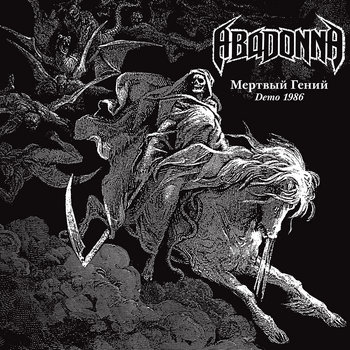Description
Continuing our mission to disinter the forgotten remains of metal recordings lost among the ruins of the Eastern Bloc, NWN! is proud to present the only extant material by Abadonna (formerly known as Falanga), one of the earliest extreme metal bands from the former Soviet Union. Recorded and self-released on cassette in 1986, Мeртвый Гений (“Dead Genius”), the 60-minute demo recording by Abadonna, is perhaps the first emanation of the black metal sound from behind the Iron Curtain. In the 1980s, while western cultural attitudes remained caught in the stranglehold of Christian morality, the Soviet Communist Party fostered an antagonistic posture toward religion, though the dogma of the Russian Orthodox Church still flowed in the bloodstream of the culture. In the mid-1980s, as Soviet society began to open up, the aggressive sounds of western rebellion resonated in the consciousness of Soviet youth. While the anti-religious aspect of extreme metal did not offend the ideological strictures imposed by the Communist Party in the same way it rankled religious conservatives in the West, the genre’s subversive, individualistic, and anti-authoritarian elements appealed to young disaffected minds in the East straining to escape the autocratic regime’s restrictive grip. Situated at the nexus of these cultural cross currents, Abadonna, who were then known as Falanga (or “Phalanx” in English), produced what might be considered a first wave black metal album that went almost completely unheard outside of the Soviet Union. Falanga formed in 1985 in the city of Mytishchi, located just outside Moscow. (In the 1990s, the small city would become a hunting ground for the prolific serial killer Alexander Pichushkin, often referred to as the “chess board killer.”) The trio consisting of bassist/vocalist Nikolay “Mike” Gribenyuk, guitarist Alexander “Abr” Abramenkov, and drummer Andrey “Beast” Slobodyany began playing heavy metal in the style of Dio and Iron Maiden before gravitating toward a darker, heavier style. Though the band was often associated with the thrash scene at the time—they were often booked on fests alongside other thrash acts—theirs was a decidedly more sinister sound, one that finds its closest analogs in the early German thrash scene. The evil atmosphere on Мeртвый Гений is further enhanced by the primitive production, with Gribenyuk’s haunting reverb-drenched vocal incantations hovering ominously above the raw, rudimentary instrumentation of the guitars and drums played with feverish intensity. Yet it also possesses the peculiar unorthodoxy that characterizes and makes so compelling much of the metal created behind the Iron Curtain, where the bleakness of society, inaccessibility to equipment, and limited exposure to the current trends fostered a creative approach to the music that renders it compelling despite languishing in obscurity for nearly four decades. The discovery of music this unique is what makes the ongoing search for lost relics a worthwhile endeavor.


